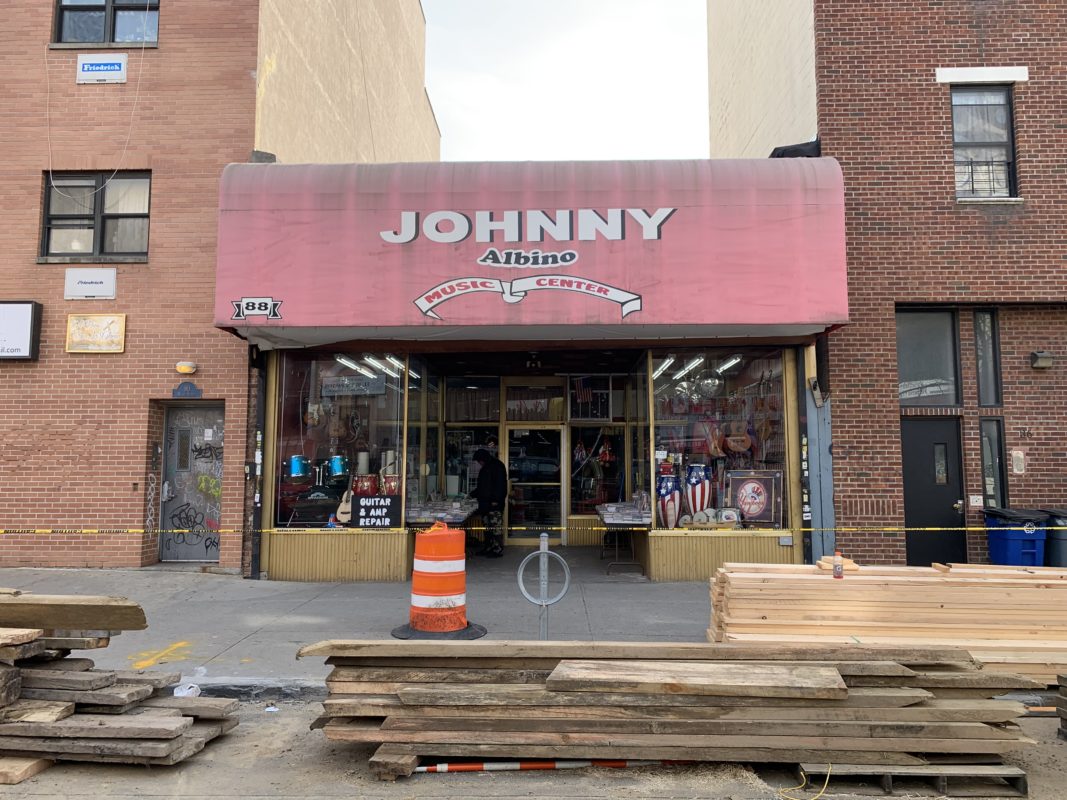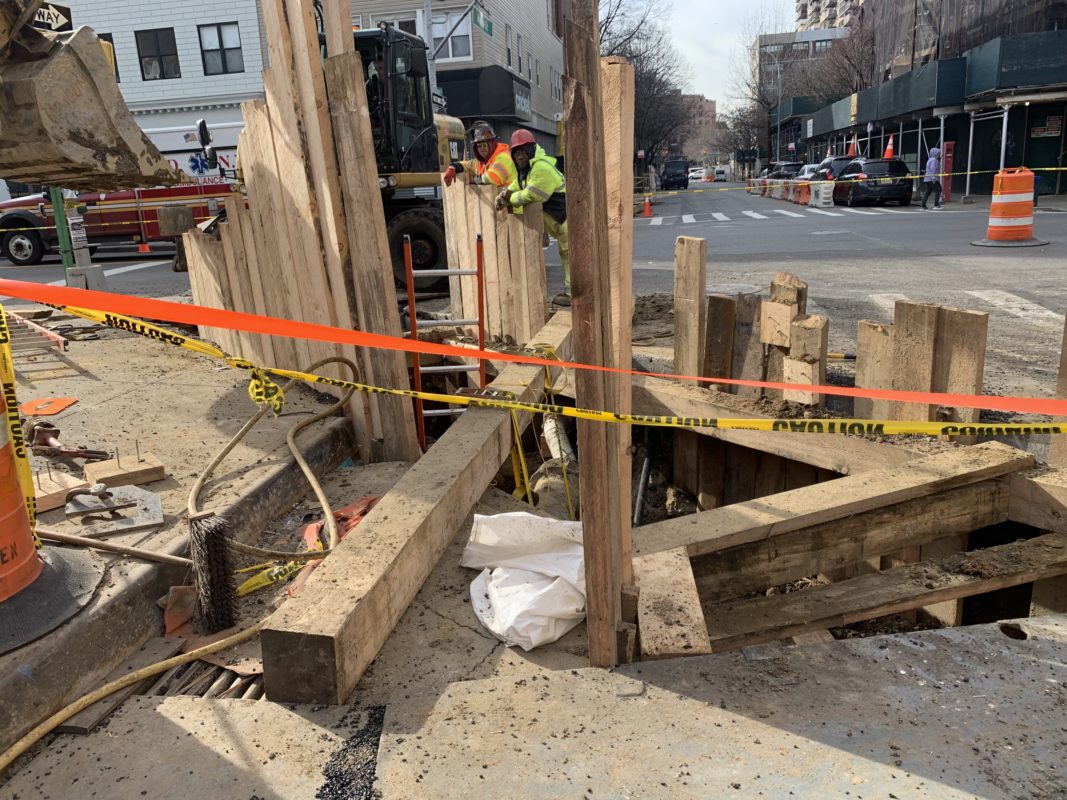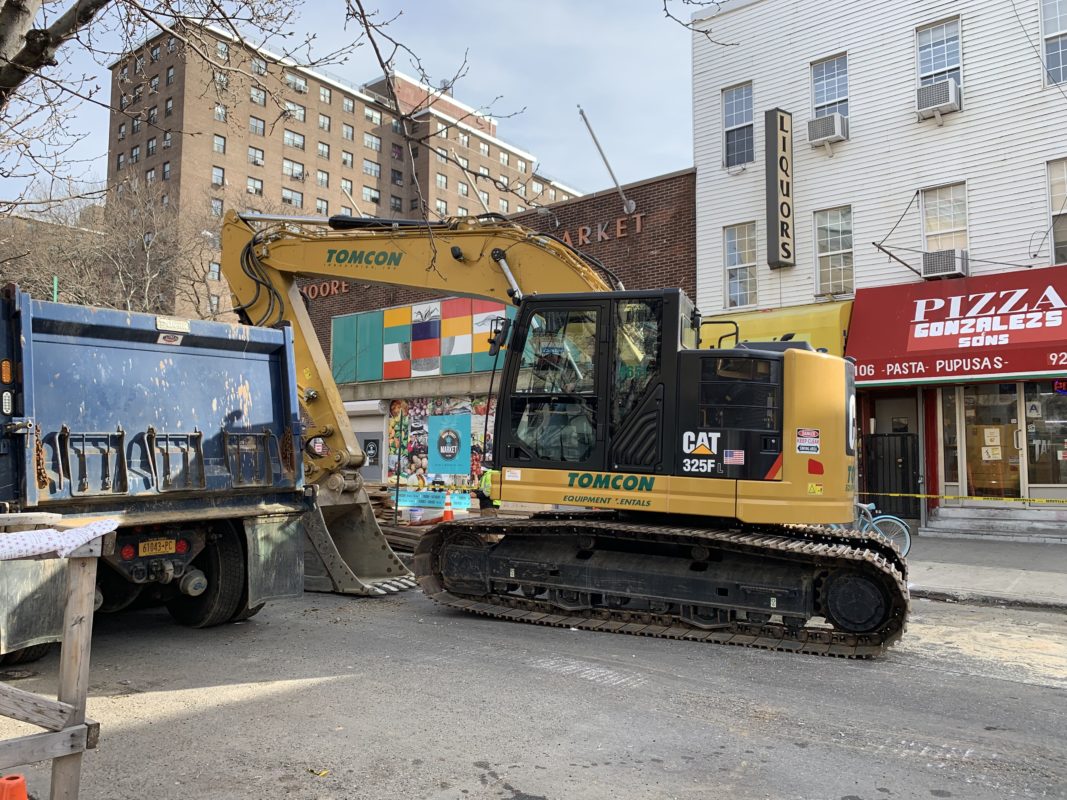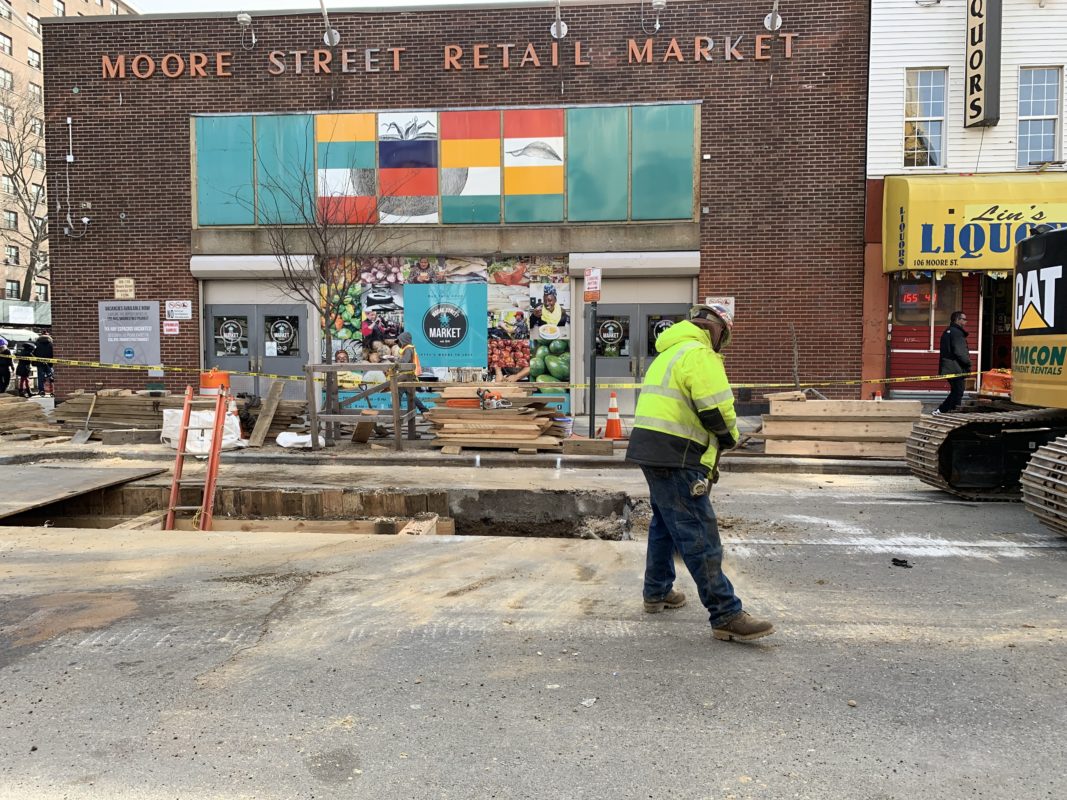National Grid, Local Representatives Respond to Moore Street Businesses in Crisis


Last week, we reported on a number of mom-and-pop shops on Moore Street between Humboldt Street and Graham Avenue in Williamsburg who have suffered profound financial losses as a result of street closure for construction on the new National Grid pipeline.
Karen Young, a media representative for National Grid told us that National Grid is complying with the city’s ordinances:
“We have all required NYC DOT construction related and road closure permits for the project and follow NYC’s Street Works Manual which provides policies and procedures for all parties that perform work in NYC streets. Our dedicated community outreach team conducts door-to-door outreach two weeks before construction is scheduled to start on a block and they are available to answer questions and address any concerns.
As required by DOT, signs were posted along Moore Street and our community outreach team provided notices in advance of the street closing. We are working with the Graham Avenue BID, have signs posted at all of the intersections to help increase visibility of stores on Moore Street, and we’re working with the businesses to provide access for deliveries.”

We reached out to National Grid to brief them on what the businesses have told us – namely, that many of them were informed of construction only a few days, or even as little as one day, ahead of time, and that many of them are struggling. In our previous article, we mentioned that Radames Millan, who owns the store Saint German at 89 Moore Street with his wife, Adelaida, said he was notified by flyer two or three days in advance. Leicy, manager of La Finca Grocery Store at 101 Moore Street, said she was handed the flyer a few days in advance.
We also asked how (or if) National Grid planned to compensate these businesses. Young’s response did not contain any substantive description of efforts to make up for the businesses’ financial losses, so we restated the question: does the National Grid plan to compensate small businesses for the loss of income over the construction period? If so, how?
Young responded that “We continue to work with the local BID and wanted to clarify that the street closing is from 9 a.m. to 4 p.m. Monday to Friday. The street is open to vehicular traffic before and after those hours and on weekends.”
We reached out to the Graham Street BID to learn how exactly how they were working with National Grid to address these issues.

“They let me know that there was going to be work done, but I didn’t know it was going to be happening that soon,” said Betty Cooney, the BID’s executive director.
Cooney said that National Grid only informed them of the length of the project about a day before, and that, while no one from the neighborhood was “knocking on [her] door” to complain about the construction, she feels that small businesses “just don’t react” unless they are forced to literally shut their doors.
However, while the construction is overall “very destructive,” to businesses, Cooney said, National Grid did a decent job of informing stores and customers of the street closure. They had, for example, placed sandwich boards on the corner near Moore Street to notify people, she said.
Cooney feels that, at the very least, National Grid should waive the stores’ gas bills for the month of construction.
The stores on Moore Street are, Cooney said, “the ones that are struggling the most in our BID. They really have it tough on that street to begin with.” Giving them free gas for the month is the very least they should be offering as compensation, Cooney believes. “It’s a little token that would not hurt [National Grid]. The jury is still out” on whether National Grid would offer such compensation, Cooney said.

We also got in touch with the New York City Department of Small Business Services (SBS) to see how they plan to support these struggling businesses.
“SBS is actively working towards assessing the issues at hand by offering personal, hands-on assistance and providing the owners with necessary resources,” said Samantha Keitt, Press Secretary for SBS.
“The Emergency Response Unit will connect with the businesses affected and act as their guide through government, providing regulatory compliance, connecting them to pro-bono legal assistance or referring them to a host of other SBS services as applicable.”
Local officials had some strong words. Emily Mijatovic, Director of Communications for the Assemblyman Lentol’s office, presented a statement on behalf of the Assemblyman at a community board meeting covering the pipeline project last night:
“It’s clear from the crowds that have come to recent meetings that residents of North Brooklyn are committed to renewable energy policies in order to thwart the climate emergency we are facing. Increasing capacity or rate hikes are not the initiatives that my constituents want to see when it comes to renewable energy policies. Plus, small businesses are the lifeblood of North Brooklyn and any type of extensive construction that disrupts customers from reaching those small businesses can ruin the financial stability of business owners.
National Grid should have conducted an extensive outreach program to residents and small businesses in North Brooklyn. The question is: why was there not more outreach? North Brooklyn residents had an opportunity to question National Grid on this project after I intervened and demanded they present to our local Community Board 1. It’s time National Grid starts acting like the community partner they say they are.”
In a statement to Bklyner, Congresswoman Nydia Velazquez wrote that “My office has been in contact with National Grid to ensure they place visible signage to inform the public that Moore St. is open for business, a request that the Graham Area Merchants Association has stressed. We have also pressed National Grid to do everything they can to mitigate any unnecessary disruption of business. The Emergency Response Plan has been filed with the New York State Department of Public Service. We are reviewing that material, now.”
“National Grid’s construction of an MRI pipeline in North Brooklyn has major effects on those who live and work in the community, especially small business owners. So far, over the duration of the pipeline’s construction, National Grid has failed to adequately engage residents and stakeholders,” Council Member Antonio Reynoso told us. “As a result, small business owners have been caught off guard by street construction, which in many cases, has hindered their ability to operate. I am dissatisfied by the company’s lack of communication with all local stakeholders, including local elected officials, and would urge the corporation to operate with greater sensitivity when dealing with an environmental justice community like North Brooklyn.”
We have reached out to the offices of Council Member Stephen Levin and Assemblywoman Latrice Walker for comment, and will update this article when we receive their responses.




